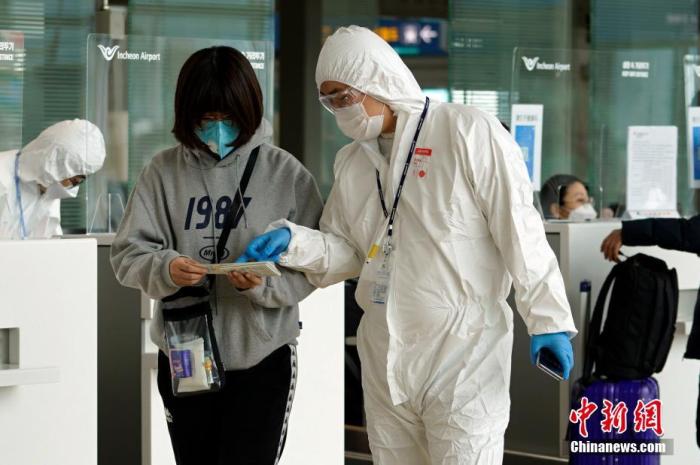China News Service, May 4, According to Singapore’s Lianhe Zaobao, Wu Mingduan, chairman of the Central Clinical Committee for New Infectious Diseases in South Korea and professor of infectious medicine at Seoul National University School of Medicine, said at a press conference on May 3 that herd immunity to the new crown virus The goal may be difficult to achieve.
Wu Mingdun said that relevant departments predict that after 70% of the population is vaccinated, herd immunity will be formed, but this is not the case.
He pointed out that a vaccine to prevent multi-generational transmission of the virus has not yet been developed.
The 95% effective rate of Pfizer vaccine means that it can prevent disease, but it does not mean that it can prevent multi-generational transmission.
How long the immunity formed after infection or vaccination can last is unknown, and it is also the reason why the epidemic is difficult to quell.
On March 4th, local time, at Incheon Airport in South Korea, airline staff checked passenger epidemic prevention certificates.
Photo by China News Agency reporter Zeng Nai
Wu Mingdun said that we must attach great importance to the mutant virus and also pay attention to the situation of infection after vaccination.
He pointed out that considering various factors, it is difficult to completely quell the epidemic or achieve the goal of herd immunity. Coronary disease will eventually coexist with humans like the flu, and people also need to be vaccinated regularly.
He said that the national vaccination strategy should shift from eradicating the virus to minimizing the damage caused by the epidemic, focusing on protecting the elderly and high-risk groups.
Regarding whether the government should change its vaccination strategy, Wu Mingdun said that in addition to completing the vaccination work of more than 70% of the people, it is not clear what the government has goals, so it is not appropriate to respond to this.
Wu Mingdun said that even if the country has not formed herd immunity, normal life can be moderately restored.
Some countries in Europe and the United States have formulated standards for relaxing epidemic prevention measures based on the immunization situation and the risk of virus transmission.

